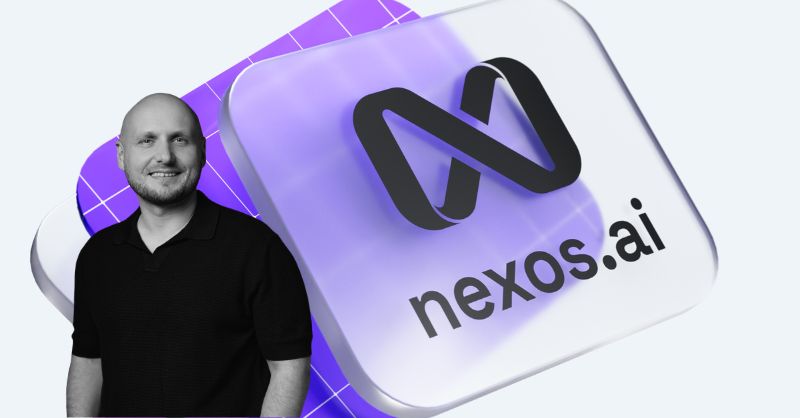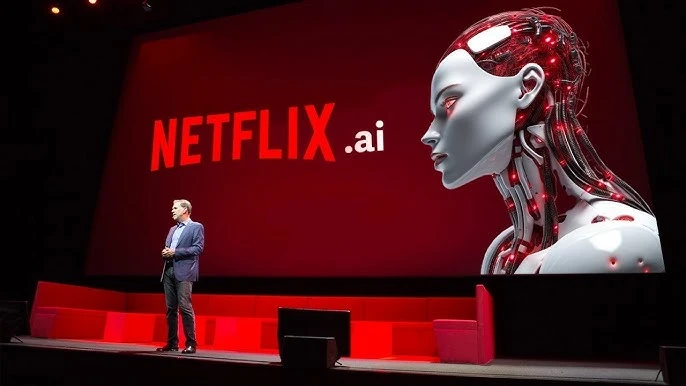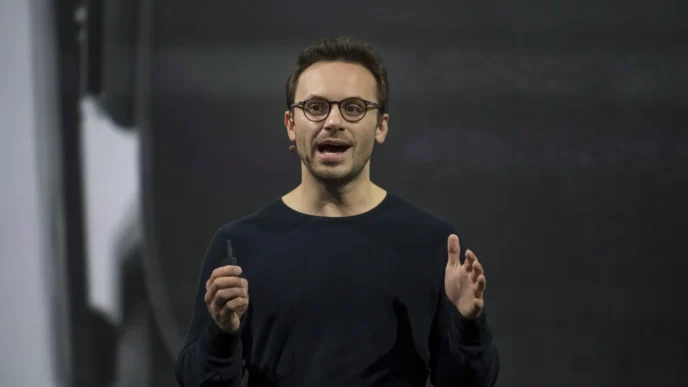For many large companies, artificial intelligence still feels like an unfinished promise, powerful but risky. Lithuanian founders Tomas Okmanas and Eimantas Sabaliauskas, best known for building cybersecurity giant Nord Security, believe they’ve found a way to bridge that gap. Their new venture, Nexos.ai, has now raised €30 million in Series A funding to make enterprise AI adoption both productive and secure.
The funding round, co-led by Index Ventures and Evantic Capital, values Nexos.ai at around €300 million ($350 million). It comes only months after the startup emerged from stealth with an earlier $8 million seed round. Other participants include Creandum, Dig Ventures, and several prominent angel investors such as the CEOs of Datadog, Klarna, Supercell, and Wix.
Okmanas warns that “the biggest corporate data leak” may already be happening as employees unknowingly share sensitive information with AI models like ChatGPT. Instead of banning AI tools altogether, Nexos.ai offers a middle ground. The platform sits between employees and AI systems, serving as what Okmanas calls a “Switzerland for LLMs.”
By positioning itself as a neutral intermediary, Nexos.ai gives enterprises the productivity boost of AI without the usual data-security trade-offs. It lets companies maintain full control of their information while their teams freely explore tools from various AI providers.
Evantic Capital founder Matt Miller, a former Sequoia Capital partner, reportedly pushed hard to close the round even though Nexos.ai wasn’t actively fundraising. His new venture network, known as the Legends, includes 140 experienced operators who support Evantic’s portfolio startups. Okmanas is both a Legend and an active participant in the group, drawing on their experience to shape Nexos.ai’s next phase of development.
At its core, Nexos.ai’s product suite consists of two layers: an AI Workspace for employees and an AI Gateway for developers. The gateway functions as a secure control layer, managing security, compliance, and cost optimization across multiple AI tools. It also reduces fragmentation, one of the biggest barriers to enterprise-wide AI adoption, by providing a single access point to more than 200 AI models.
The company plans to use its new funding to expand support for private and on-premise models, especially for clients dealing with sensitive data or strict regulatory standards. According to Okmanas, the Nexos team now conducts 50 to 60 demo calls a week, with growing interest from enterprises that want to experiment safely with generative AI.
For now, the company is focusing on tech-savvy firms already integrating AI into their operations and on regulated industries like finance, healthcare, and government. These sectors often hesitate to send data to external cloud-based AI tools, creating a strong need for secure, regionally compliant solutions.
The idea for Nexos.ai was born inside Tesonet, the founders’ venture builder that creates and backs technology startups. While managing Tesonet’s portfolio, Okmanas and Sabaliauskas noticed a common pattern, many companies were eager to use AI but were unsure how to do so safely. That realization led to Nexos.ai.
Several Tesonet-backed firms have already adopted the platform, including Hostinger and Nord Security itself. Another early customer is Bulgarian fintech unicorn Payhawk, which maintains offices in Vilnius, Lithuania.
With its new funding, Nexos.ai plans to expand across Europe and North America, addressing rising demand for secure AI integration among enterprises and public institutions. Okmanas says European clients, in particular, are drawn to the company’s emphasis on data sovereignty, as many governments now push for local AI infrastructure.
Nexos.ai’s founders are no strangers to scaling globally. Their previous venture, Nord Security, reached a $3 billion valuation while remaining profitable and founder-led. This time, they’re bringing that same discipline to enterprise AI.
Okmanas explains that within Tesonet’s portfolio, AI assistants have already delivered tangible value. At Hostinger, an AI-powered customer assistant reduced the need for hundreds of human support hires, saving around €10 million in a single year. “That’s why companies shouldn’t fear AI, they should structure it,” he adds.
Although he declined to reveal Nexos.ai’s revenue figures, Okmanas confirmed that the company plans to grow its team to 100 employees by its first anniversary. Most of the team will be based in Europe, close to the markets most concerned about compliance, data security, and responsible AI adoption.
For now, the company’s focus is simple: make AI easier, safer, and more useful for enterprises. As more companies experiment with large language models, Nexos.ai aims to be the trusted bridge that finally turns AI’s potential into measurable business results.













